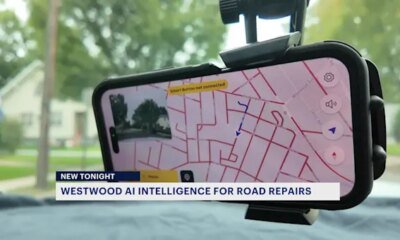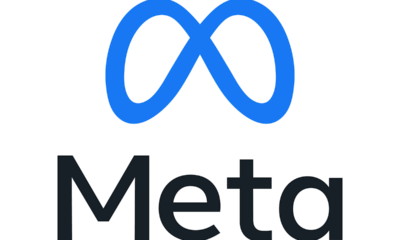Ethics & Policy
From Textbooks to Tech: How Indian Schools are Embracing AI in Education

From Textbooks to Tech: How Indian Schools are Embracing AI in Education
Photo : iStock
Artificial Intelligence (AI) and Machine Learning (ML) are no longer distant technological concepts. These are reshaping the way we live, work, and even learn. Recognising the potential, the Union Education Minister Dharmendra Pradhan recently said that it is important to bring these new tools into our classrooms, so that students can be ready for the future.
In 2022, UNESCO, too, had launched a report on how AI could change the Indian classrooms. Titled ‘State of the Education Report (SOER) for India: Artificial Intelligence in Education – Here, There and Everywhere’, the report stated that to responsibly integrate Artificial Intelligence in education, it is essential to prioritise ethics, establish a comprehensive regulatory framework, and foster strong public-private partnerships.
In response to this call, schools across the country are stepping up.
“Introducing AI and ML has significantly transformed our students’ learning experience. These technologies personalize learning, enhance critical thinking, and build future-ready skills,” Ajay Singh, Principal of The Scindia School told Times Now Digital. He notes that students now engage in real-world projects, such as drone initiatives, where they apply AI concepts hands-on, reflecting both innovation and leadership.
While schools are now starting to embrace AI as a part of the curricula, experts believe that AI should be introduced from the foundational years. “It demystifies technology and sparks curiosity, analytical thinking, and problem-solving abilities early on. Our educational resources must reflect the skills the future demands,” said Pallavi Upadhyaya, Principal, DPS Raj Nagar Extension.
With a changing world and employers seeking AI-savvy talent, Indian schools are coming to terms with the fact that integrating AI in school education is not just timely, but essential.
However, educators are cautious that only age-appropriate AI content can equip students for a world where automation, data science, and intelligent systems will touch nearly every profession.
AI: A Tool for All Learners, Not Just High Achievers
Sadly, some schools are restricting AI learning to students who score above 80 per cent, while others oppose this practice. Times Now Digital learned that many schools advocate for differentiated learning approaches, where students explore AI based on their interests and learning styles, rather than rigid performance thresholds. “Limiting AI education to high scorers undermines the purpose of education,” said the DPS principal Pallavi.
Many experts believe that AI can enhance learning outcomes by engaging diverse learners in creative and analytical ways. “Artificial intelligence is not just for top performers—it’s a foundational tool that all students should access. Restricting access can dampen curiosity and discourage students who might have a natural inclination but haven’t yet excelled academically,” Singh added.
Preparing Educators for AI Era
Equipping students with AI skills begins with preparing teachers. With this in mind, schools are investing in faculty training to ensure they can deliver AI education effectively. In December 2024, the Delhi Government announced plans to set up Artificial Intelligence (AI) Labs in select schools. The State Council of Educational Research and Training (SCERT) is also known to be developing Artificial Intelligence-related courses.
Private schools are also joining this movement. Mukta Rana, who is a Sanskrit teacher at Mayur School was thrilled to share how the students and teachers are using AI and technology for education. “Earlier we used to go to Computer or Science labs once a week, now every class has separate labs and we as teachers focus more on the practical aspects. Can you believe class 6 students are making robots? All of us were amazed to see this talent at such a young age,” she said.
At DPS, educators have undergone certifications and workshops conducted by CBSE, IBM, Intel, and other platforms. Regular in-house sessions and collaborations with tech industry experts help keep the faculty updated with the latest developments.
Scindia School also prioritises faculty training. “Our teachers are trained to present complex AI concepts in simplified, age-appropriate ways. We invest in continuous upskilling to align our teaching with global standards” said Singh.
Anju Soni, Principal, Shiv Nadar School, Noida said, “Integrating AI in textbooks is essential because it enables students to receive immediate feedback and course corrections, creating a closed feedback loop that enhances learning. Our educators actively use AI tools such as Diffit and Khanmigo to support both teaching and learning processes. Additionally, some assignments are specifically designed to allow students to use AI as a tool for exploring critical and creative thinking, fostering innovation while developing essential 21st-century skills.“
AI in Education: Opportunities and Challenges
The integration of AI into education opens new avenues for interdisciplinary learning, innovation, and global employability. However, it also presents challenges. Schools will need to upgrade infrastructure, update curriculum as well as train teachers to keep pace with rapidly evolving technologies.
Arav, a class 5 student of a private school in Patna shared that his school lacks basic infrastructure.”We only have 1 Computer class a week and there too teachers get busy explaining parts of the computer and ask us to draw on MS Paint. My Computer textbook chapter includes MS Logo and many other things, but all we are asked to do is to maintain discipline and draw on MS Paint every week.”
Personally, though, he uses AI for help and basic information. “I think AI is much better than Wikipedia, at least I get to know if the source is authentic or not. I do use AI to help me write essays and slogans.”
Another class 12 student from Delhi, Yash, offered a different perspective. He highlighted how integrated technology has taken place in both his academic and personal life.“I use AI tools not just for school projects and homework but also for learning things. I am curious about, like coding and graphic design. At school, we use it in computer class and even in science experiments. At home, I ask AI to suggest answers, It’s like having a smart helper all the time.”
Parents, too, need to be trained for this shift of technology. Orientation sessions can help parents understand AI’s relevance beyond screen time and gaming. They should be taught about its potential to equip their children for a complex future. The key will be to ensure equitable access to AI education and maintain a balance between technological advancement and core human values.
At many schools, this balance is already taking shape. AI is not a replacement for human educators but it is a powerful tool to support personalized learning, spark innovation, and uphold their legacy of holistic excellence.
Ethics & Policy
Heron Financial brings out AI ethics committee and training programme

Heron Financial has unveiled an artificial intelligence (AI) ethics committee and student cohort.
The mortgage and protection broker’s newly formed AI ethics committee will give employees the opportunity to offer input on how AI is utilised, which ensures that innovation will be balanced with transparency, fairness and accountability.
Heron Financial said the AI training will be a “combination of technical learning with ethical oversight” to ensure the “responsible integration” of the technology into Everglades, its digital platform.
As part of its AI student cohort, a number of members from different teams will be upskilled with an AI development programme.
Matt Coulson (pictured), the firm’s co-founder, said: “I’m proud to be launching our first AI learning and development cohort. We see AI not just as a way to enhance our operations, but as an opportunity to enhance our people.
“By investing in their skills, we’re giving them knowledge they can use in their work and daily lives. Human and technology centricity are part of our core values; it’s only natural we bring the two together.”
How we built a limited company proposition around brokers’ needs
Sponsored by BM Solutions
‘It’s about combining technology and human expertise to raise the bar’
Alongside this, Heron Financial’s Everglades platform will be embedded with AI-driven innovations comprising an AI reporting assistant, an AI adviser assistant and a prediction model, which it said uses basic customer details to predict the likelihood of them gaining a mortgage.
The platform aims to support prospective and existing homeowners by simplifying processes, as well as providing a referral route for clients and streamlining the sales-to-mortgage process to help sales teams and housebuilders.
Also in the pipeline is a new generation of AI ‘agents’ within Everglades, which Heron Financial said will further automate and optimise the whole adviser journey.
Coulson added: “We expect these developments to save hours in the adviser servicing journey, enabling our advisers to spend more time with clients and less time on admin. It’s about combining technology and human expertise to raise the bar for the whole industry.”
At the beginning of the year, Coulson discussed the firm’s green retrofit process in an interview with Mortgage Solutions.
Ethics & Policy
Starting my AI and higher education seminar

Greetings from early September, when fall classes have begun. Today I’d like to share information about one of my seminars as part of my long-running practice of being open about my teaching.
It’s in Georgetown University’s Learning, Design, and Technology graduate program. I’m team teaching it with LDT’s founding director, professor Eddie Maloney, who first designed and led the class last year, along with some great guest presenters. The subject is the impact of AI on higher education.
Every week students dive into one topic, from pedagogy to criticism, changes in politics and economics to using LLMs to craft simulations. During the semester students lead discussions and also teach the class about a particular AI technology. Each student will also tackle Georgetown’s Applied Artificial Intelligence Microcredential.
Midjourney-created image of AI impacting a university.
Almost all of the readings are online. We have two books scheduled: B. Mairéad Pratschke, Generative AI and Education and De Kai, Raising AI: An Essential Guide to Parenting Our Future.
Here’s the syllabus:
Introduction to AI in Higher Education:
Overview of AI, its history, and current applications in academia
Signing up for tech sessions (45 min max) (pair up) and discussion leading spots
Delving deeper into LLMs
Guest speakers: Molly Chehak and Ella Csarno.
Readings:
- AI Tools in Society & Cognitive Offloading
- MIT study, Your Brain on ChatGPT. (overview, since the study is 120 pages)
- Allie K. Miller, Practical Guide to Prompting ChatGPT 5 Differently
Macro Impacts: Economics, Culture, Politics
A broad look at AI’s societal effects—on labor, governance, and policy—with a focus on emerging regulatory frameworks and debates about automation and democracy.
Readings:
Optional: Daron Acemoglu, “The Simple Macroeconomics of AI”
Institutional Responses
This week, we will also examine how colleges and universities are responding structurally to the rise of AI, from policy and pedagogy to strategic planning and public communication.
Reading:
How Colleges and Universities Are Grappling with AI
We consider AI’s influence on teaching and learning through institutional case studies and applied practices, with guest insights on faculty development and student experience.
Guest speaker: Eddie Watson on the AAC&U Institute on AI, Pedagogy, and the Curriculum.
Reading:
Pedagogy, Conversations, and Anthropomorphism
Through simulations and classroom case studies, we examine the pedagogical potential and ethical complications of human-AI interaction, academic integrity, and AI as a “conversational partner.”
Readings:
AI and Ethics/Humanities
This session explores ethical and philosophical questions around AI development and deployment, drawing on work in the humanities, global ethics, and human-centered design.
Guest speaker: De Kai
Readings: selections from Raising AI: An Essential Guide to Parenting Our Future (TBD)
Critiques of AI
We engage critical perspectives on AI, focusing on algorithmic bias, epistemology, and the political economy of data, while challenging dominant narratives of inevitability and neutrality.
Readings:
Human-AI Learning
This week considers how humans and AI collaborate for learning, and what this partnership means for workforce development, education, and a sense of lifelong fulfillment.
Guest Speaker: Dewey Murdick
Readings: TBD
Agentic Possibilities
A close look at emerging AI systems and agents, with attention to autonomy, instructional design, and how educational tools are integrating generative AI features.
Reading
- Pratschke, Generative AI and Education, chapters 5-6
Future Possibilities
We explore visions for the future of AI in higher education, including utopian and dystopian framings, and ask how ethical leadership and equity might shape what comes next.
Readings:
One week with topic reserved for emerging issues
Topic, materials, and exercises to be determined by instructors and students.
Student final presentations
I’m very excited to be teaching it.
Related
Ethics & Policy
Why the Future of Fintech Must Put Ethics First

In fintech, moving fast and scaling smart guidance is the name of the game. But speed without trust is a losing strategy.
Ask anyone who’s tried to choose a health plan, adjust a retirement contribution or manage their finances through an employer portal: Financial decisions today are complicated and confusing. In fact, recent research found that more than one-third of full-time employees avoid thinking about benefits and retirement entirely — not because they don’t care, but because the process feels overwhelming.
That’s exactly where fintech has stepped in. AI-powered platforms have made it possible to democratize financial guidance, bringing tools once reserved for high-net-worth clients to everyday people. But as these systems grow from simply informing to autonomously guiding and acting on behalf of users, the stakes rise.
Opaque algorithms. Misaligned incentives. Trust gaps between what technology delivers and what users actually need. These aren’t abstract risks — they’re real-world consequences that shape lives, affecting everything from retirement security to household healthcare.
That’s why as fintech companies lean deeper into agentic AI, ethics can’t be an afterthought. Building systems that are human-centered and fiduciary-minded isn’t just a regulatory checkbox. It’s fundamental to ensuring scalable financial guidance serves the people it’s meant to help.
What Is Ethical Fintech?
Ethical fintech refers to AI-driven financial platforms designed with fiduciary principles, transparency and user-first outcomes at their core. By aligning algorithms and business models with long-term customer benefit, ethical fintech builds trust while guiding complex financial decisions at scale.
From Information to Action: Why the Shift Matters
Early fintech platforms focused on providing users with better access to information: credit scores, budgeting tools, savings calculators. Today, we’ve moved into a new era where AI-driven platforms don’t just provide information; they automatically adjust contributions, rebalance portfolios and even select insurance or healthcare plans without direct user input.
This transition from passive tools to active guidance engines amplifies the importance of embedded ethics. An advisor’s fiduciary duty is well understood in the traditional financial services world. But as algorithms take on more of that advisory role, how do we ensure they’re acting in the user’s best interest?
The Risk Behind Fintech Convenience
At scale, small biases in AI models or misaligned business incentives can have big impacts. Financial technology companies often face pressure to keep user-facing products free, which means monetizing through third-party partnerships, affiliate revenue or product placement. While not inherently wrong, these structures can quietly nudge users toward outcomes that benefit the platform more than the individual.
It’s easy to imagine a situation where an AI engine suggests health plans or retirement options that prioritize profit rather than what’s best for the user. These aren’t hypothetical concerns. The complexity of financial products, combined with muddied recommendation logic, can erode user trust if people feel the system isn’t on their side.
Scaling Trust Alongside Technology
The antidote isn’t to slow down fintech innovation. The real opportunity is to scale trust alongside technology. That means embedding ethical principles into product design from the ground up, much like “shift-left” security in software development.
These principles include:
- Embedding fiduciary ethics directly into AI decision-making frameworks.
- Prioritizing user-first outcomes in algorithm design.
- Ensuring transparency and explainability in AI-driven recommendations.
- Structuring business models to align revenue with long-term user benefit, rather than short-term engagement.
Human-Centered Design as an Ethical Foundation
At the core of ethical fintech lies human-centered design. Financial technology isn’t purely a numbers game. It’s about guiding people through complex, emotionally charged decisions that shape their health, wealth and future.
Human-centered design means starting with empathy and understanding that what’s mathematically optimal may not always be what’s emotionally reassuring or practically useful. For example, people navigating benefits enrollment might prioritize predictability over theoretical savings. Survey data supports this: Nearly 80 percent of employees say they’d be more engaged in benefits selection if they had year-round access to guidance. This suggests that people don’t just want automation. Instead, they want clarity and ongoing support. Good design respects those nuances.
It also means recognizing that trust isn’t just about the quality of recommendations. It’s also about how transparently they’re delivered. Users need to understand why the system is suggesting a particular option, especially in high-stakes areas like healthcare coverage or retirement planning.
Ethics as a Product Feature, Not a Footnote
One way to think about embedded fiduciary ethics is as a core product feature. Just as fintech platforms advertise speed, simplicity or personalization, they should also prioritize fairness, clarity and user-first outcomes as competitive advantages.
This is becoming a market expectation. Users increasingly understand that “free” services often come with hidden costs. Transparency about business models, meaning who pays and why, will be key to maintaining trust as AI-driven financial services scale.
Real-World Examples: What Good Looks Like
Examples of this shift toward ethics-driven design are emerging across the industry:
- Some benefits platforms now clearly explain why one health plan bundle is recommended over another, rather than simply presenting options.
- Investment tools increasingly highlight long-term risk and performance trade-offs, rather than pushing users toward higher-fee products.
- AI recommendation engines are being paired with explainability features, offering plain-language insights into what factors shaped a given suggestion.
And critically, some platforms are experimenting with agentic AI that comes with embedded user controls and override options, enhancing rather than removing autonomy.
These are small but meaningful steps in building a more ethical fintech ecosystem.
Preparing for the Future: Agentic AI and Beyond
Looking ahead, the industry faces new challenges and opportunities as fintech tools evolve. The rise of agentic AI means systems that don’t just offer choices but autonomously act on behalf of users.
Imagine a future where your retirement contribution automatically adjusts every month based on your spending patterns or where your benefits enrollment happens via natural language chat rather than a complex form. These innovations promise greater convenience and accessibility, but they also raise the stakes for ethical design.
When users delegate more control to AI, transparency, fairness, and human-centeredness become even more critical. That’s especially true as many workers are grappling with broader financial concerns: Recent data shows that 64 percent of respondents are worried about household financial resilience, and many report postponing major life milestones due to high out-of-pocket costs and confusing benefits decisions. Companies will need to invest in algorithmic explainability, clear user consent models and proactive monitoring to ensure outcomes remain aligned with user interests.
The Path Forward for Fintech
Fintech has the power to transform financial services for the better. But as the tools we build become smarter and more autonomous, our responsibility grows. Scaling financial guidance without embedded ethics risks eroding the very trust fintech is meant to build.
The future belongs to platforms that combine technological sophistication with human-centered values, balancing automation with accountability, speed with clarity, and personalization with fairness.
Financial guidance at scale doesn’t just need to be smart. It needs to be ethical. That’s the challenge — and the opportunity — that lies ahead.
-

 Business2 weeks ago
Business2 weeks agoThe Guardian view on Trump and the Fed: independence is no substitute for accountability | Editorial
-
Tools & Platforms4 weeks ago
Building Trust in Military AI Starts with Opening the Black Box – War on the Rocks
-

 Ethics & Policy2 months ago
Ethics & Policy2 months agoSDAIA Supports Saudi Arabia’s Leadership in Shaping Global AI Ethics, Policy, and Research – وكالة الأنباء السعودية
-

 Events & Conferences4 months ago
Events & Conferences4 months agoJourney to 1000 models: Scaling Instagram’s recommendation system
-

 Jobs & Careers2 months ago
Jobs & Careers2 months agoMumbai-based Perplexity Alternative Has 60k+ Users Without Funding
-

 Podcasts & Talks2 months ago
Podcasts & Talks2 months agoHappy 4th of July! 🎆 Made with Veo 3 in Gemini
-

 Education2 months ago
Education2 months agoMacron says UK and France have duty to tackle illegal migration ‘with humanity, solidarity and firmness’ – UK politics live | Politics
-

 Education2 months ago
Education2 months agoVEX Robotics launches AI-powered classroom robotics system
-

 Funding & Business2 months ago
Funding & Business2 months agoKayak and Expedia race to build AI travel agents that turn social posts into itineraries
-

 Podcasts & Talks2 months ago
Podcasts & Talks2 months agoOpenAI 🤝 @teamganassi






















